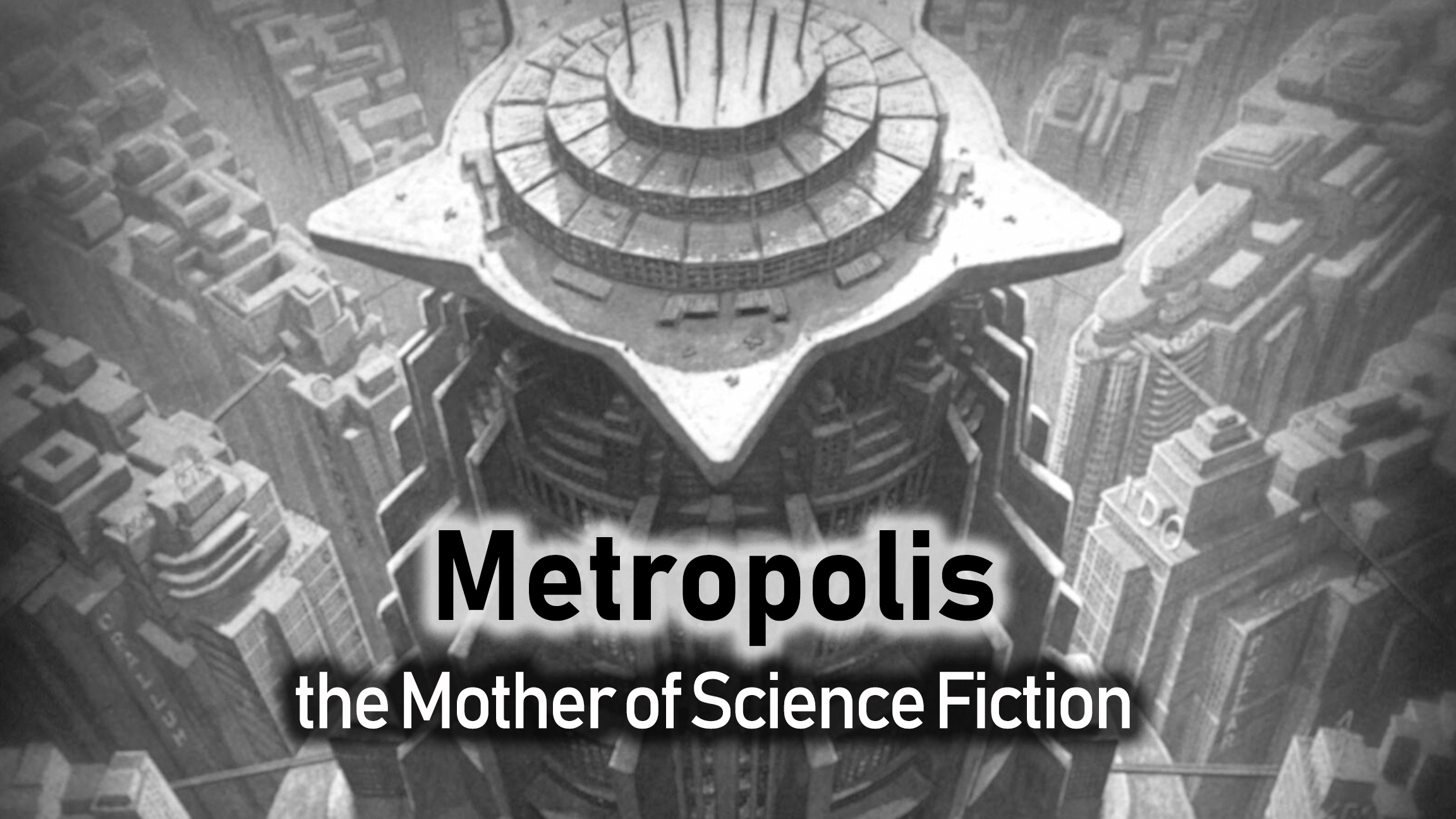The 1920s were an exciting decade for movies. Disney was created. The “Big 5” Movie Studios rose to power. Audio could now be integrated with film (goodbye silent films!) and Metropolis was released. Metropolis holds a significant, though often under-appreciated, place in cinema history. With all the modern movies and shows we have to choose from, it could be incredibly tempting to write off a century-old film; I know I did at first. But, once I put aside my prejudice against the past, I found a cinematic treasure that easily rose in the ranks of my top 100 films.
Metropolis holds the honor of being the first feature-length science fiction film; often heralded as the mother of the entire cinematic sci-fi genre. Believe it or not, the idea of the “feature film” was relatively new; just over a decade old at this point in history. Most films of this era were short; all of them were silent. But, in 1927, the introduction of audio integration changed all that. Dialogue, sound effects, and music could finally be heard on screen! While the actors for Metropolis all still played their roles “silently,” Gottfried Huppertz composed a full-length orchestral score for the movie, which rises and falls with the action of the film. The film’s signature soundtrack is one of the first things viewers hear in the opening, and it immediately draws viewers into the world of Metropolis.
Metropolis was also revolutionary for its time in terms of set and costume design. The film producers spared no expense in adapting the 1925 novel of the same name and consequently almost bankrupted the studio. Massive sets and an array of miniatures helped create a fully fleshed out, sprawling metropolis that seems to unfold infinitely into the horizon. In the center of this seemingly infinite city set, rises the iconic “New Tower of Babel” (more on that in a moment); one of the most well-known skyscrapers from the movie. The fame of the tower is overshadowed only by the icon of an automatronic character known as the Machine Man.
The Machine Man has since been adapted and copied in concept by many sci-fi films over the decades since 1927. In Metropolis the Machine Man is the invention of the crazed, bitter inventor Rotwang, and it has the ability to take on the appearance of any human Rotwang chooses. An extension of his will, Rotwang uses his robotic creation, born in his image, to wreak havoc on the rest of mankind. The Machine Man embodies all the potential that mankind possesses (both constructive and destructive) when we harness the power of advanced technology to further self-seeking interests. It’s a common motif in the sci-fi genre: Man often finds his undoing through the very technology he used to gain power.
Metropolis’s imagery doesn’t stop there; that’s just the tip of the iceberg. This movie is brimming with imagery, especially of the biblical variety. Metropolis opens with the words, “Epigram: THE MEDIATOR BETWEEN HEAD AND HANDS MUST BE THE HEART!” and then spends the rest of the story making it clear it’s alluding to a Christ-like protagonist, Freder. There are several references to the original (and a new) tower of Babel, a prophetess, the seven deadly sins, the apocalyptic woman named Babylon who is perched atop a dragon from the book of Revelation, a giant cathedral (a central set piece in the film), and a scene of an exhausted Freder suffering in the lower levels of Metropolis that elicits strong connection to Jesus’s suffering on the cross. It’s certainly not subtle, but all of it fits. These images belong in this world and the story makes good use of them to help point to its central theme: man’s need for a mediator. Rather than simply try and tell a biblical story, the movie uses biblical imagery to retell an archetypal story (which so happens to be the archetype of a messiah). I wouldn’t necessarily classify Metropolis as a Christian movie, but it’s message remains true to the imagery it pulls from.
A good chunk of the footage for Metropolis was lost long ago, but has slowly been recovered and restored over the decades (the latest find of footage belonging to a tiny film museum in Argentina). This means that there are several versions of the film floating around ranging from 1.5 hours to 2.5 hours. If you’re looking to get the whole experience, you can’t go wrong with The Complete Metropolis, distributed by Kino. It’s the fullest version of the film out there. You can also find the full film on YouTube or Streaming on the Criterion Channel.
I highly recommend you give this movie a watch when you can. It paved the way for how we do science-fiction in cinema today and has certainly earned its place in history with its story, imagery, and soundtrack. Truly this movie represents the beginnings of all we’ve come to love in the genre and has no better accolade than to be called “The Mother of all Sci-Fi.”
Written By:


